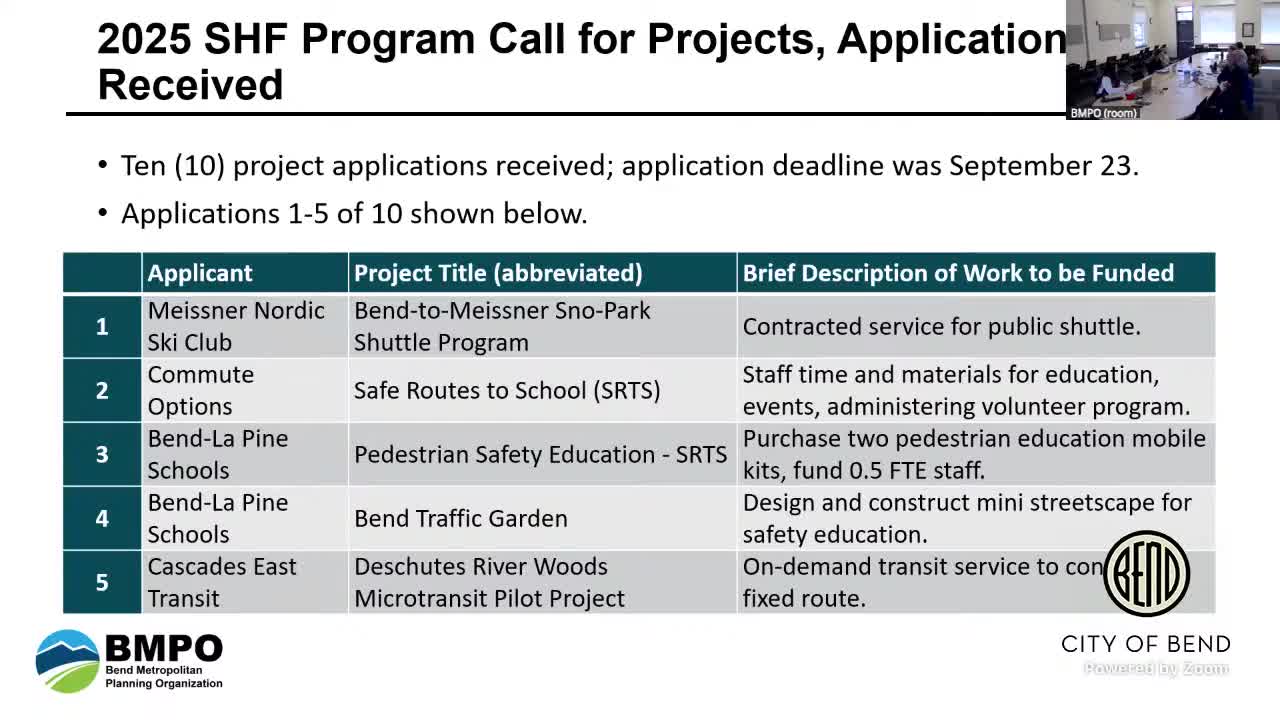Board hears overview of HB 3991 and potential local impacts to transportation funding
Get AI-powered insights, summaries, and transcripts
Subscribe
Summary
MPO staff briefed the board on HB 3991 from the 2025 special legislative session, which raises transportation revenues (gas tax, registration fees, payroll tax for transit, and a road usage charge for EVs) and could increase local transportation funding but carries implementation timing and referral uncertainty.
Staff briefed the Bend MPO Policy Board on the transportation funding changes enacted by HB 3991 during Oregon’s 2025 special legislative session and discussed potential local implications for Bend and Deschutes County.
Tyler Deakey summarized key provisions: increases to gas tax and registration fees, a per‑mile road usage charge for electric and hybrid vehicles with opt‑out and flat‑fee alternatives, and a temporary payroll tax increase for public transportation that would sunset on Jan. 1, 2028. He reported the bill was scheduled to take effect Jan. 1, 2026.
Board members and staff discussed implementation issues the bill raises: technical challenges in administering a per‑mile road usage charge, privacy and administrative costs associated with GPS or onboard device collection systems, the likelihood of continuing resolutions at the federal level and the need for MPO reserves, and how temporary payroll tax funds might be used by transit agencies (capital vs. recurring service). Bob Townsend of Cascades East Transit said the temporary payroll tax could allow CET to accelerate service improvements (for example, reduced headways on some routes) but highlighted hiring and sustainability concerns if the funding is temporary.
Staff advised that a referendum petition process could freeze implementation pending signature verification and that specific implementation rules would take additional administrative time. Staff also supplied rough local revenue projections prepared prior to the special session showing material increases to local transportation receipts through 2030 under the enacted changes, but cautioned that inflation and long‑term fiscal pressures could outpace revenues in later biennia.
No board action was taken; staff said they will continue to monitor administrative rule‑making, potential referendum activity, and timing for when funds would be available to local jurisdictions.
